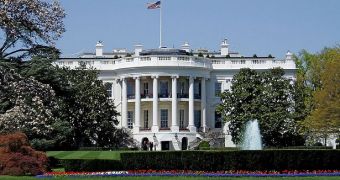While visiting the Consumer Electronics Show (CES) 2010, held in Las Vegas, the United States first chief technology officer was told that governments often acted as a block in the path of innovation. While also receiving praise for the role that America played in the field of science and technology, Aneesh Chopra was also made aware of the fact that there were numerous areas of science that were much better off without government rules being imposed on them for political reasons.
“When it comes to innovation there's a lot the government can do, and there's a lot they should not do. The government doesn't spur innovation or entrepreneurship. The government often gets in the way,” the President of the Consumer Electronics Association (CEA), Gary Shapiro, told the American official. The consumer industry head runs the group that organizes CES, the largest such event in the world annually. Over the years, numerous technologies we currently use have been introduced at this show, including, among others, the BluRay Disc, the Digital Versatile Disc (DVD), the HDTV, the Camcorder, and many, many others.
A recent study by Zogby International was also brought into the spotlight. The research proved that the overwhelming majority of Americans, about 96 percent, believed that innovation was one of the main ways of getting the world out of the economic crisis it lingered in at the moment. With this in mind, analysts say, it stands to reason that authorities should do everything in their power to promote the phenomenon, and not block it. The way governments prevent advancements is by introducing numerous laws against certain types of research, by setting in place a large bureaucratic apparatus, and by imposing high taxes.
Additionally, in the case of the United States, skilled workers from countries such as China and India are often denied passage into the country for various reasons, even when it's clear that they have a highly trained background, and that they are masters in their respective fields of research. “The government is often a barrier. High taxes and regulatory bureaucracy are barriers,” Shapiro added, quoted by the BBC News.
Chopra admitted that there were some grounds to the CEA criticism. “We don't have to agree on every issue, but we can always say we have room for improvement to spur innovation and entrepreneurship. We have to eat our own dogfood – Gary is right about the federal deficit. We are in an economic crisis but we are going to tackle it. We have to get this right,” the authority said in a statement at the conference.

 14 DAY TRIAL //
14 DAY TRIAL //